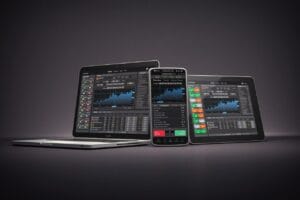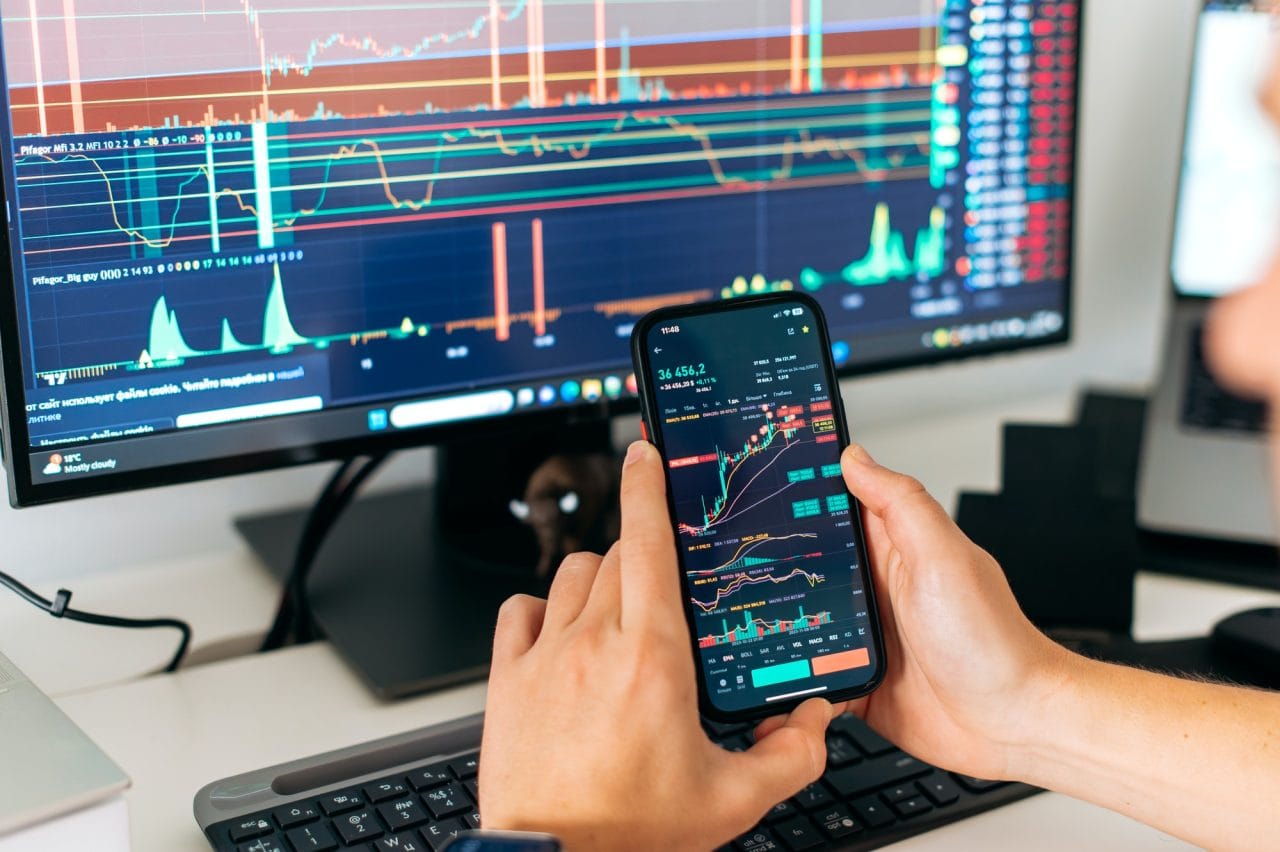Day trading can seem like a thrilling and potentially profitable activity, but it also requires a solid understanding of the markets, strategies, and risks involved. In this guide, we’ll break down the day trading basics to help you understand the essential concepts, tips, and tools needed to succeed.
Whether you’re looking to make your first trade or refine your existing skills, Forexmover is here to provide you with the knowledge and resources you need to make informed decisions.
What is Day Trading?
Definition
Day trading refers to the practice of buying and selling financial instruments, such as stocks, forex, or commodities, within the same trading day. The goal is to capitalize on small price movements throughout the day. Unlike long-term investing, where assets are held for months or years, day traders close all their positions by the end of the trading day to avoid overnight risk.
Day traders rely heavily on short-term market fluctuations and make multiple trades throughout the day. This makes day trading a fast-paced, active form of trading that requires a good understanding of market trends and technical analysis.
Key Concepts in Day Trading
Time Frame
Day trading is done within a single trading day, often within a few hours or even minutes. Traders use very short time frames to analyze the markets and make quick decisions. This is different from long-term trading, where the holding period for assets can last for weeks, months, or even years.
Leverage
Leverage allows traders to control a larger position than their capital would typically allow. While leverage can amplify profits, it also increases the risk of significant losses. Understanding how leverage works is crucial for any day trader.
Risk Management
Risk management involves using strategies like stop-loss orders to limit potential losses. Since day trading involves quick decisions and frequent trades, managing risk is vital to protecting your capital.
Volatility
Day traders thrive in volatile markets where price movements are more frequent and dramatic. Volatility can provide opportunities for short-term profits, but it also increases the risk of loss. Understanding how to gauge and manage volatility is crucial to success in day trading.
Common Day Trading Strategies
Scalping
Scalping is one of the fastest strategies used in day trading. It involves making small profits from tiny price changes. Traders using scalping might make dozens or even hundreds of trades in a day, aiming to profit from small movements in the market.
Momentum Trading
Momentum trading involves identifying stocks or other financial instruments that are moving significantly in one direction, either up or down. Traders buy into momentum and hold their positions as long as the price trend continues.
Range Trading
Range trading works best in markets that are trading within a certain range. Traders buy at the lower end of the range and sell at the upper end, capitalizing on the price fluctuations within that range.
Breakout Trading
Breakout trading involves identifying key levels of support or resistance and waiting for the price to break through these levels. When the price moves past these levels, traders take positions with the expectation of a larger price movement.
Tools of the Trade: What You Need for Day Trading
Trading Platform
A reliable and fast trading platform is essential for any day trader. Platforms like MetaTrader 4, MetaTrader 5, or specialized platforms from brokers such as Forexmover provide access to real-time market data, order execution, and charting tools.
Charts and Technical Indicators
Charts and technical indicators like moving averages, Relative Strength Index (RSI), and Bollinger Bands are critical for analyzing market conditions. These tools help day traders spot trends, identify entry and exit points, and assess the potential for price movement.
Economic Calendar
Economic events, such as earnings reports, economic data releases, or central bank decisions, can cause significant price movements. Using an economic calendar allows traders to plan ahead for these events and adjust their strategies accordingly.
News Feeds
Staying updated with breaking news is vital for day traders. News can move the markets in an instant, and a trader who isn’t aware of the latest events may miss critical opportunities. Tools that provide real-time news alerts are essential for staying ahead.
Risk Management in Day Trading

Use Stop-Loss Orders
One of the easiest ways to protect yourself from significant losses in day trading is using stop-loss orders. These orders automatically sell your position if the price hits a pre-determined level, thus preventing further losses.
Risk-Reward Ratio
Day traders often use the risk-reward ratio to determine whether a trade is worth taking. For example, a risk-reward ratio of 1:2 means you are risking $1 to potentially gain $2. Keeping a favorable risk-reward ratio ensures that even with a few losses, your profits can still outbalance them.
Don’t Over-leverage
While leverage can increase profits, it can also magnify losses. It’s crucial not to use excessive leverage, especially when starting. Many successful traders recommend keeping leverage low until you gain more experience.
Benefits of Day Trading
Potential for Quick Profits
Because day trading focuses on short-term price movements, traders have the potential to make profits quickly. However, this also means the potential for losses is equally fast.
No Overnight Risk
Since day traders close all positions by the end of the trading day, they avoid the risks associated with holding positions overnight. This eliminates the uncertainty of market fluctuations after hours.
Flexibility
Day trading offers the flexibility to trade at your own pace. Whether you’re trading full-time or part-time, you can choose the hours that work best for you.
Challenges of Day Trading
High Risk
Day trading can be very risky, especially for beginners. The fast pace of trading combined with volatile market conditions means that losses can accumulate quickly if not managed properly.
Emotional Stress
Day trading requires a calm and focused mind. The constant decision-making and quick action can be stressful, especially when trades are not going your way.
Requires Significant Time and Effort
While day trading can be profitable, it requires a significant amount of time, attention, and continuous learning. Traders must be committed to keeping up with the latest market trends, news, and economic events.
How to Get Started with Day Trading
Choose a Reliable Broker
Select a broker that offers a good trading platform, competitive fees, and solid customer support. Forexmover provides everything a day trader needs, from advanced trading tools to in-depth market insights.
Practice with a Demo Account
Before trading with real money, practice using a demo account to get a feel for the platform and test your strategies. This will help you gain confidence and avoid costly mistakes when you begin trading with real funds.
Develop a Trading Plan
A trading plan outlines your goals, risk tolerance, and strategies. It’s important to have a clear plan in place so you can trade with discipline and avoid emotional decisions.
Conclusion
Day trading can be a profitable activity if done correctly, but it requires skill, discipline, and a good understanding of the markets. By learning the day trading basics, practicing with a demo account, and using proper risk management techniques, you can increase your chances of success.
Remember, Forexmover is here to support you with the tools and resources you need to make informed decisions and improve your day trading skills. Take the time to learn, stay disciplined, and always manage your risk to become a successful day trader.
FAQs About Day Trading
What is the minimum amount of money needed to start day trading?
While there’s no set minimum amount, many brokers require a minimum deposit of $500 to $1,000. However, it’s recommended to have more capital to manage risk effectively.
How do day traders make money?
Day traders make money by capitalizing on small price fluctuations within a single trading day. The more frequently they trade, the more opportunities they have to profit.
Is day trading risky?
Yes, day trading is considered high-risk, especially for beginners. It’s important to practice good risk management techniques and never trade with money you can’t afford to lose.
Do I need to be a financial expert to start day trading?
While you don’t need to be a financial expert, you should have a basic understanding of the markets, trading strategies, and risk management.
Can day trading be done part-time?
Yes, many day traders do it part-time. However, successful day trading requires a significant amount of time, focus, and dedication, even if done part-time.






